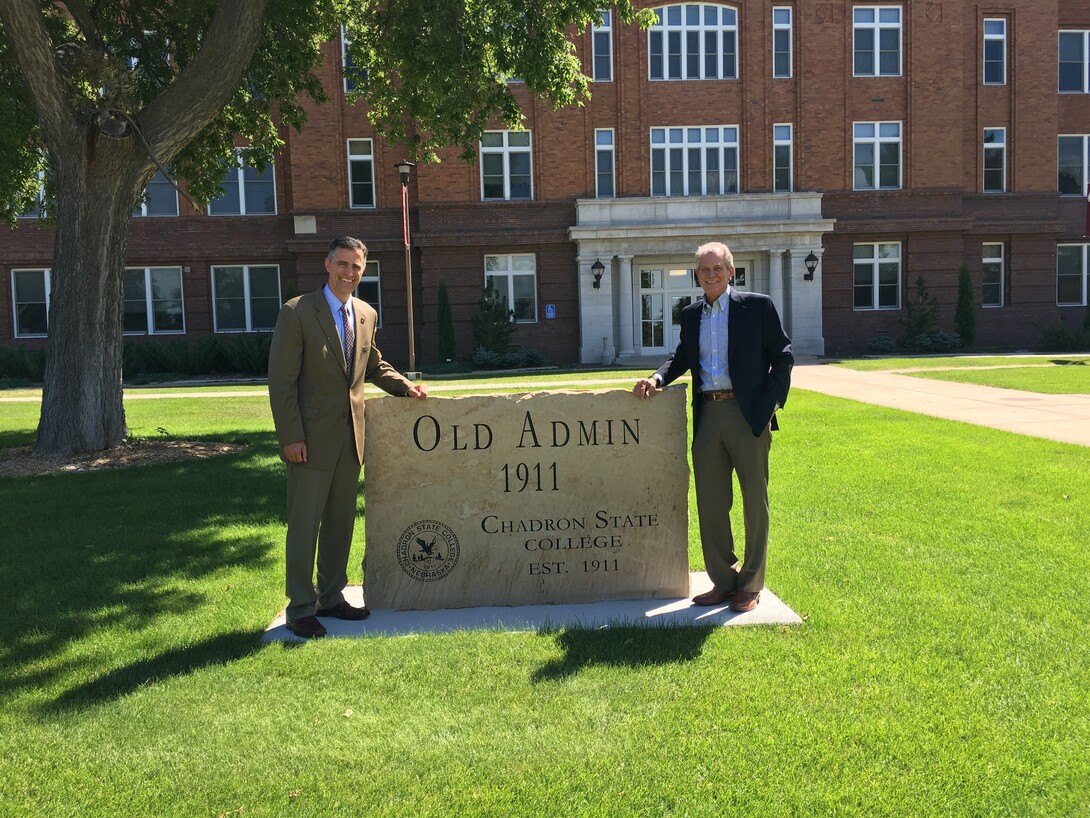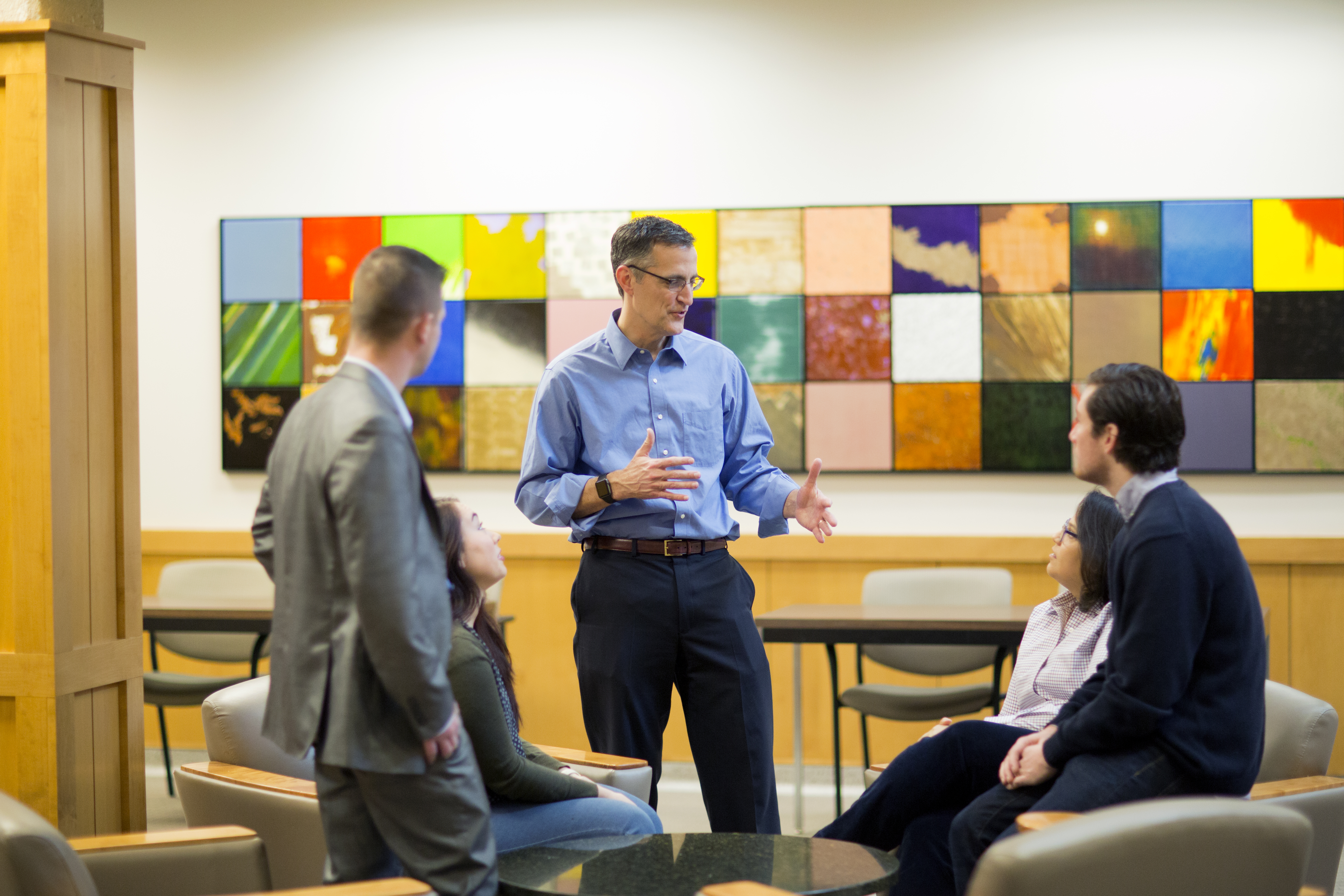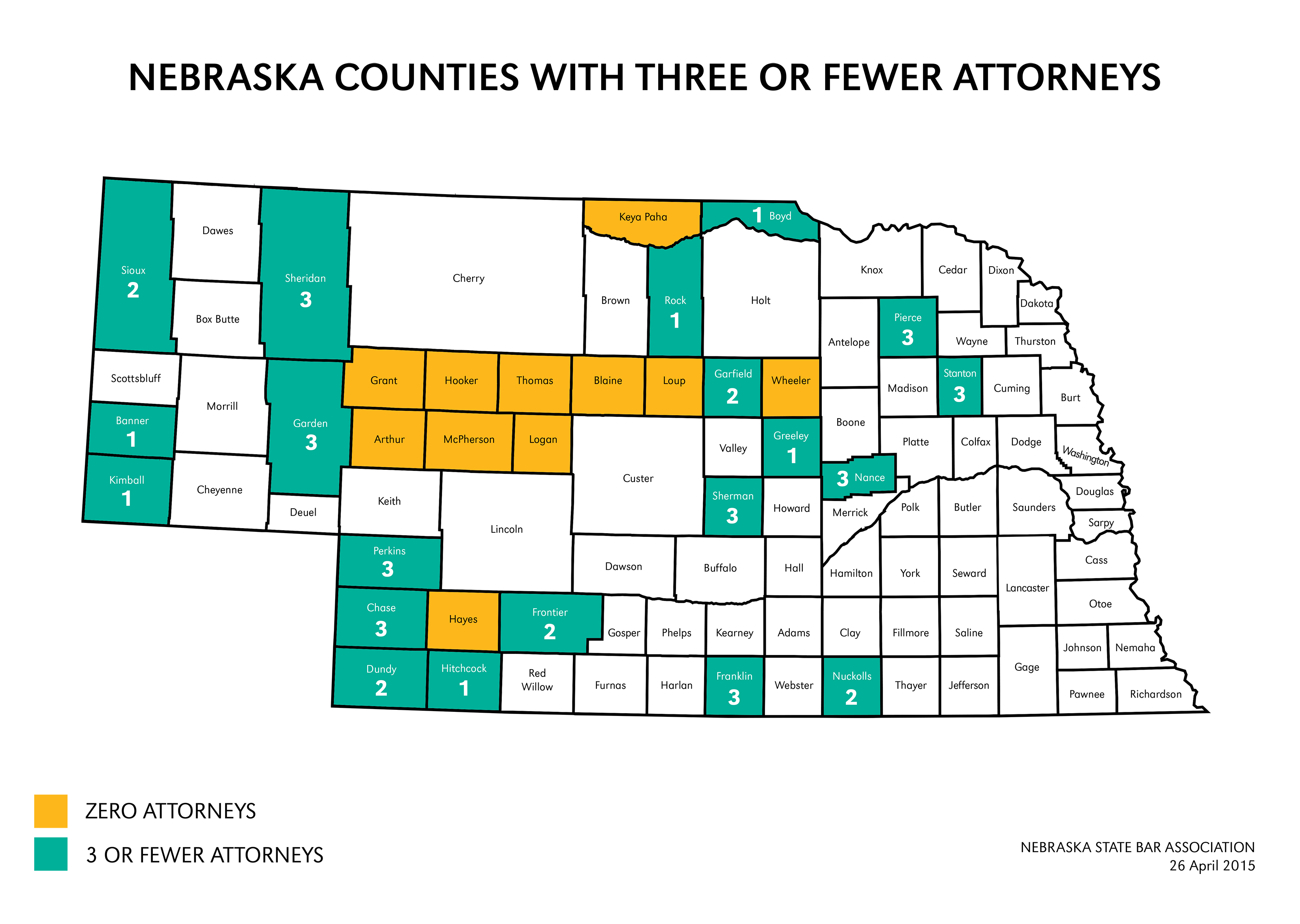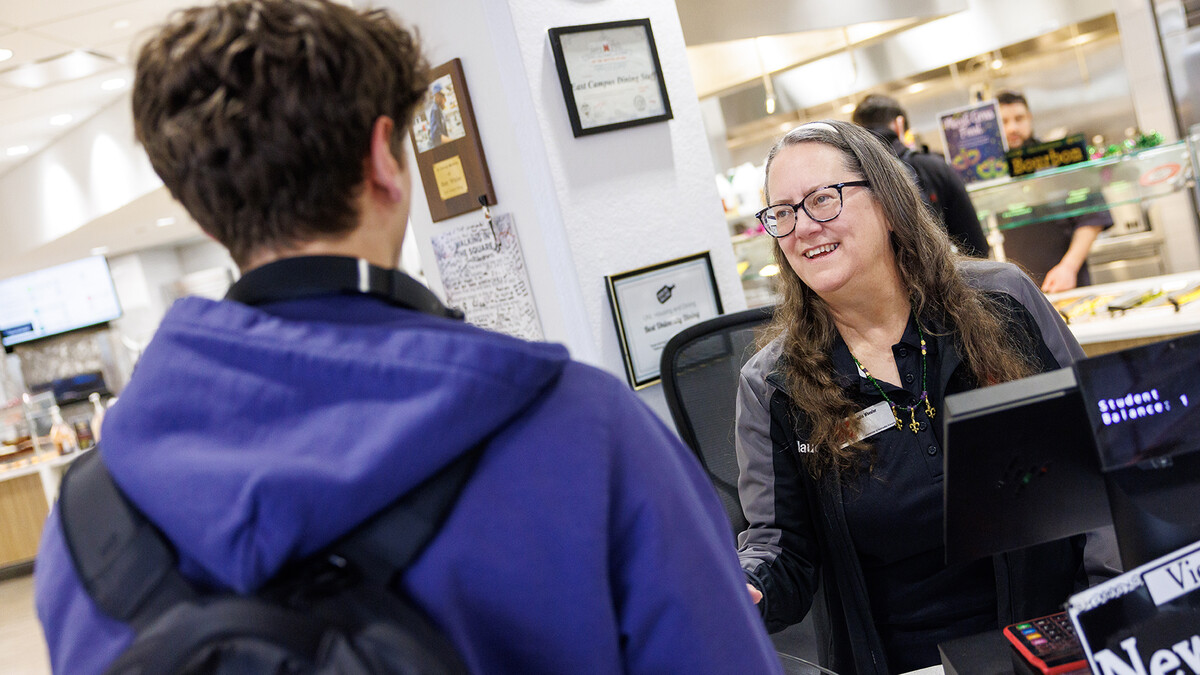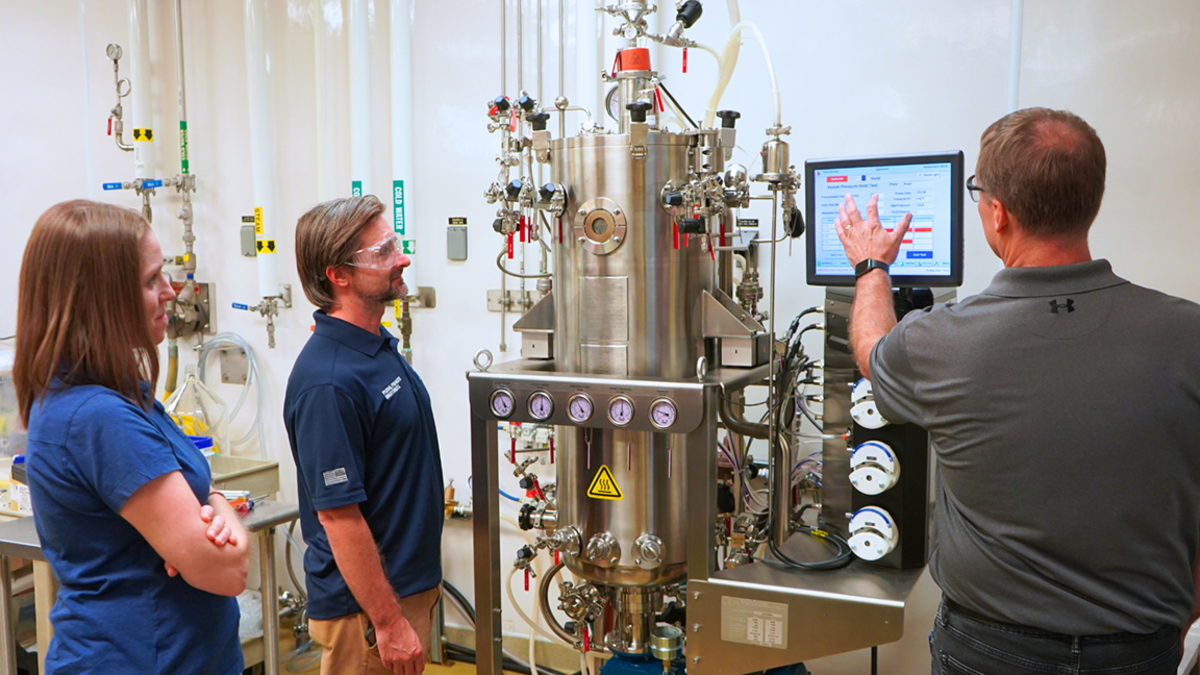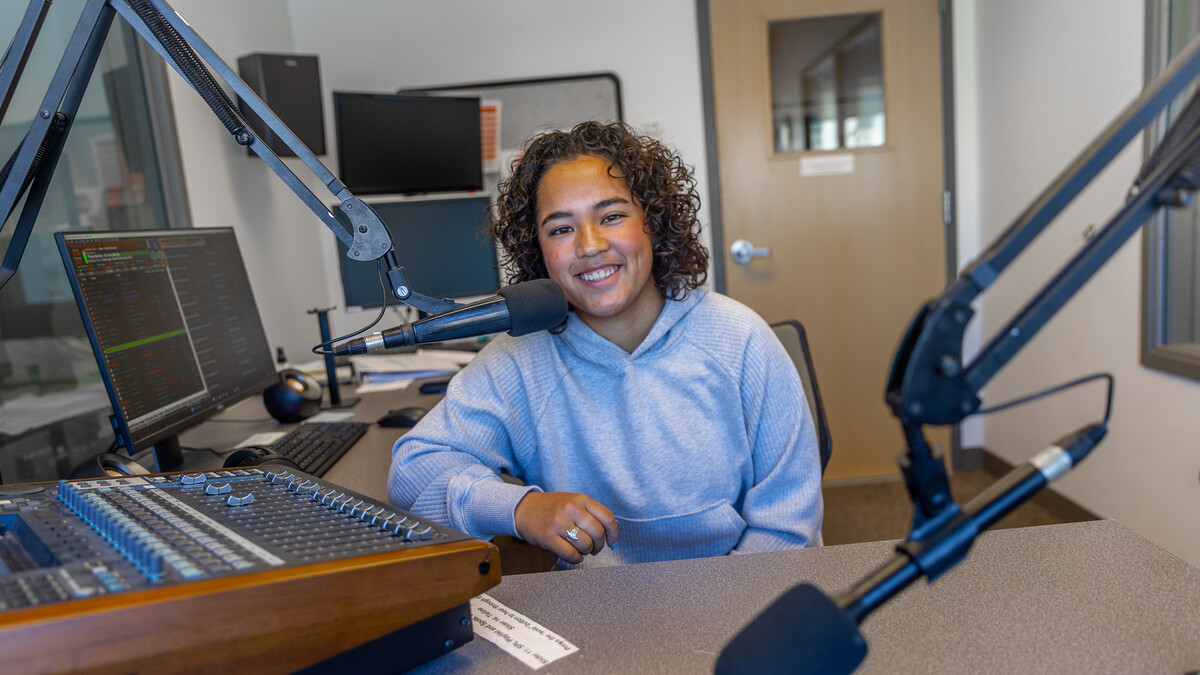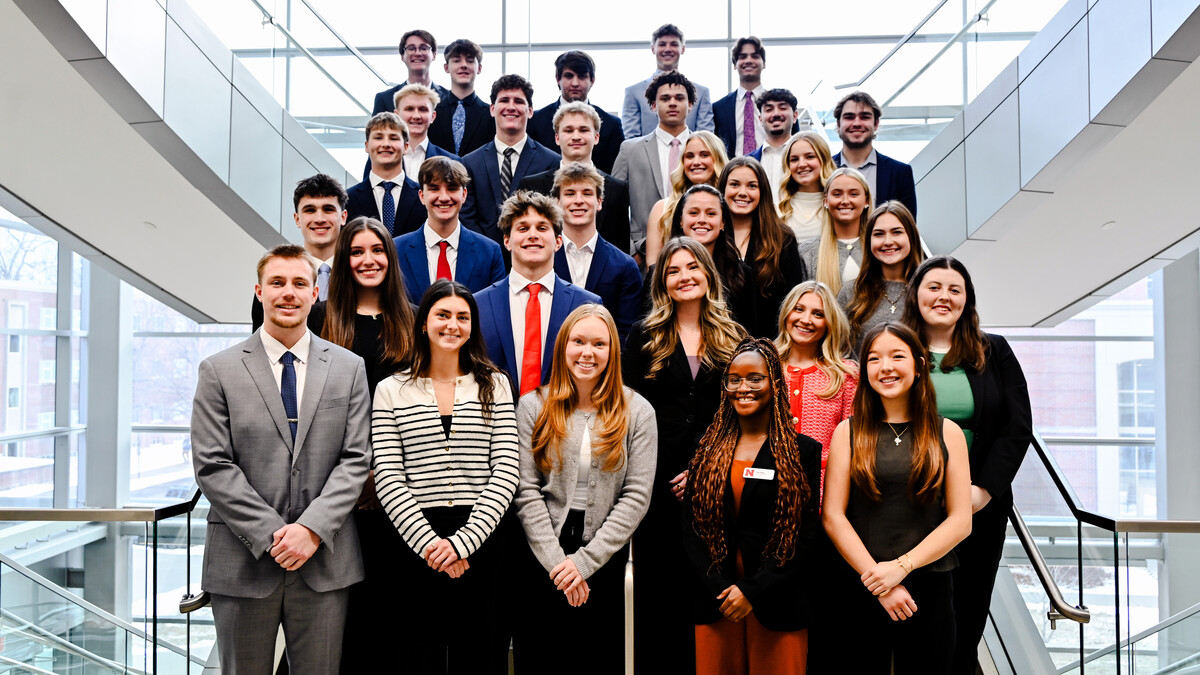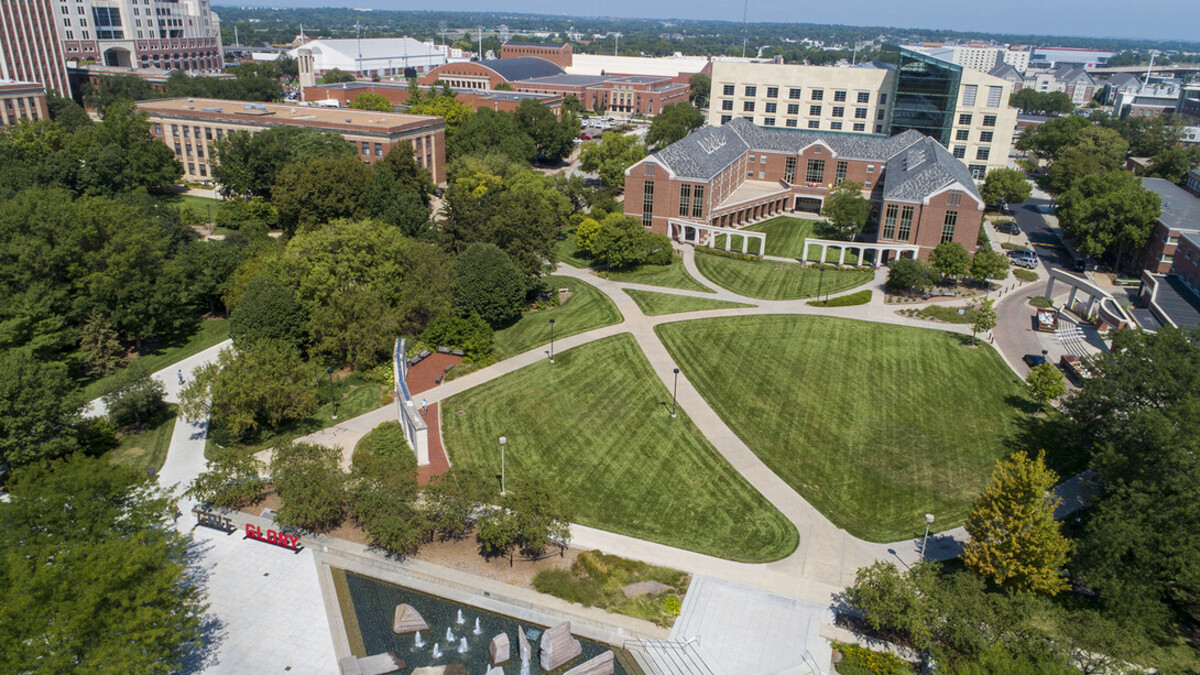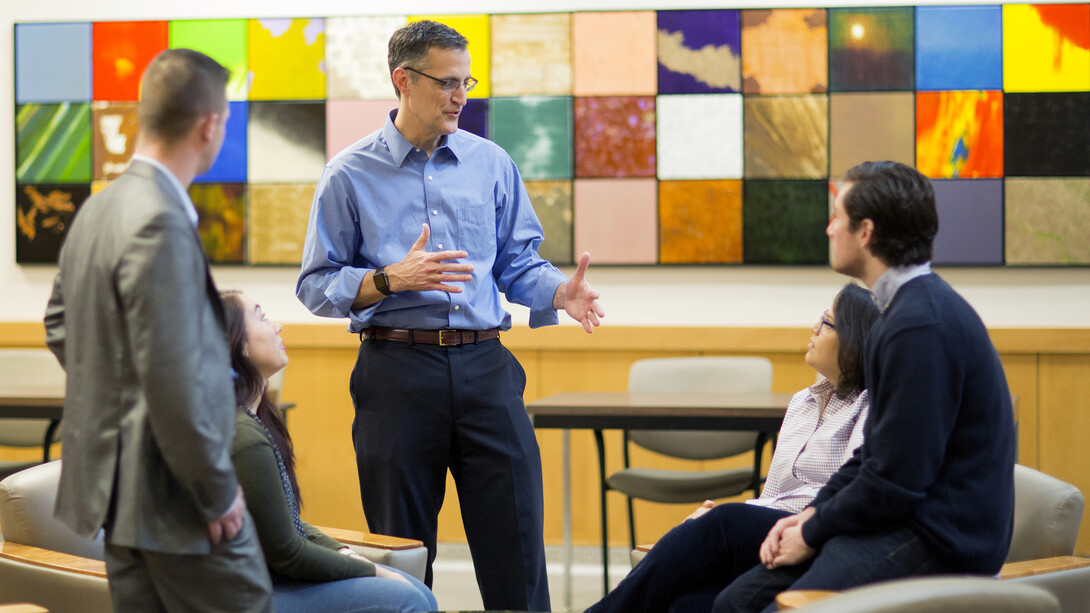
The University of Nebraska College of Law is rolling out a new strategy to reduce the state’s shortage of rural lawyers by drawing upon students from Nebraska’s small towns and farms.
With the Rural Law Opportunities Program, the law college will work in partnership with Wayne State College, Chadron State College and the University of Nebraska at Kearney to jointly recruit incoming college freshmen from rural Nebraska to pursue legal careers outside Nebraska’s metropolitan areas.
The undergraduate institutions will provide free tuition and, if the selected students maintain a 3.5 grade point average and achieve a predetermined score on the Law School Admissions Test based on the College of Law’s current admission standards, they will be admitted automatically to the College of Law. Participants also will receive programming, support and mentorships from the law college while they’re pursuing their bachelor’s degrees.
“I think of it as part of a multi-pronged effort to encourage lawyers to practice in rural Nebraska,” said Richard Moberly, interim dean of Nebraska Law. “This will help increase access to justice and encourage economic development, both of which involve having accessible legal services.”
Many areas of the state face critical shortages of lawyers. According to the Nebraska State Bar Association, 31 of Nebraska’s 93 counties have three or fewer lawyers and 11 have no attorneys at all. This shortage creates additional hardships for people in rural areas who need a lawyer’s help with developing an estate plan, handling a divorce, buying a home or business, enforcing a contract or resolving a criminal charge.
Lyle Koenig, a Wayne State College alumnus who has practiced mostly in the Beatrice and Hebron areas during his 44-year career, said he has witnessed a tremendous decline in the number of “country lawyers” during the past two decades.
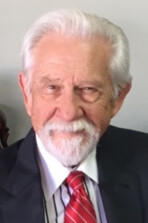
“Now it really seems to be like pulling teeth. It just seems impossible to get people to come out (to rural areas),” Koenig said.
As co-chairman of the bar association’s Rural Practice Initiative committee, Koenig is helping lead efforts to remedy the problem. Koenig said it makes sense to him that a student from rural Nebraska would be more willing to consider a legal career in a rural area.
Koenig grew up in Wisner. After graduating from Nebraska Law, he launched his career as a trial attorney in Hebron. He and Moberly are to be honored for their efforts to develop the program during the Nebraska State Bar Association’s annual convention Oct. 28.
“In cooperation with Wayne State College, Chadron State College and the University of Nebraska at Kearney, they have created and put into place the nation’s only ‘RLOP,’” said Thomas M. Maul, a Columbus attorney and president of the state bar association. “I believe that years from now, people will look back on the implementation of this program as the defining event for getting lawyers to return to rural Nebraska to practice law.”
After earning their law degrees, the new attorneys would be expected to return to rural Nebraska to launch their careers.
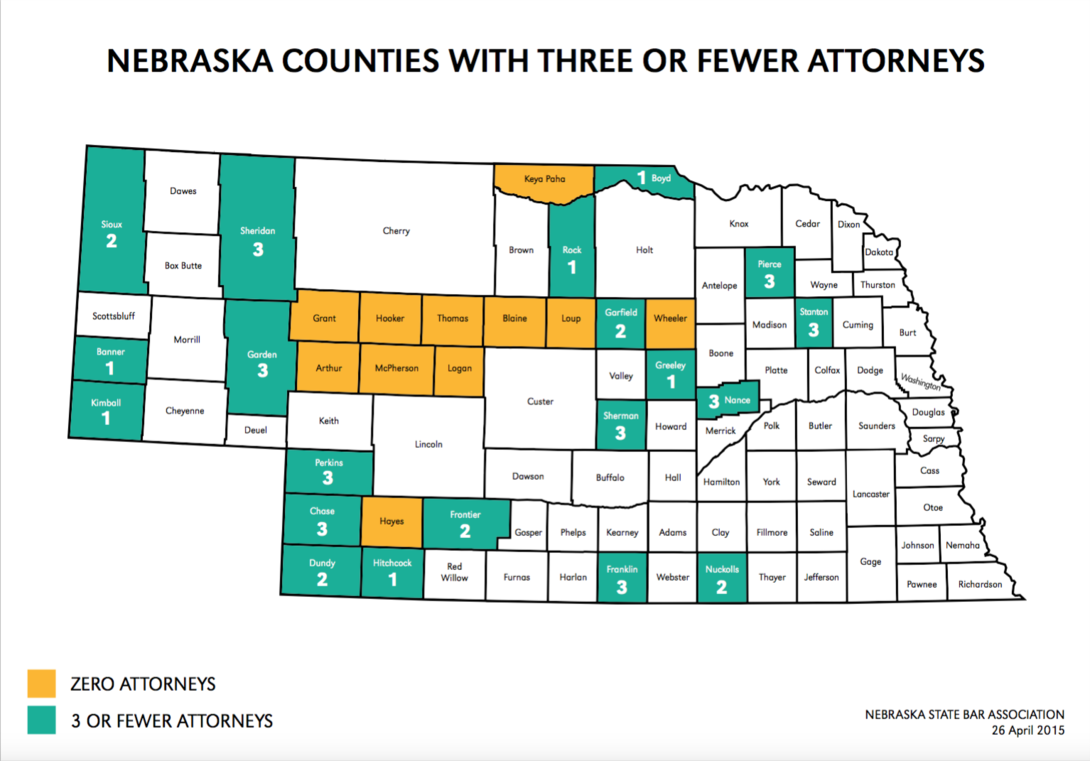
The Rural Law Opportunities Program is modeled after a similar program created by the University of Nebraska Medical Center more than 25 years ago. Robert Bartee, the medical center’s vice chancellor for external affairs, said the Rural Health Opportunities Program was developed in conjunction with the Rural Health Education Network when rural health practitioner numbers began falling during the 1980s farm crisis.
“The overriding thing we learned is that you have a much better chance of having a graduate go back to a rural area if they’re from a rural area,” Bartee said.
Since 1990, more than 420 students have graduated from the health care version of the program, with 65 percent remaining in Nebraska and 73 percent of those who remain in Nebraska working in rural areas.
The American Bar Association lists Texas, South Dakota, Vermont, Oregon, Iowa, Wisconsin and North Dakota as states that have launched programs to increase legal services in rural areas. However, their approaches include offering legal services via video- or teleconferencing; resources, support and incentives for lawyers who work in rural areas; fellowships, internships and clerkships for law students; and bus tours for new lawyers and law students to meet attorneys in rural practices. The RLOP is an innovative and unique way to supplement those programs, which Nebraska also offers.
Nebraska Law continues to participate in the bar association’s Rural Practice Initiative, a comprehensive effort that includes paid clerkships in nonmetropolitan areas and bus tours to give aspiring lawyers a sense of what it’s like to work in a small law firm. The bar association also will lobby next year to renew funding for a student loan forgiveness program for lawyers who practice in rural areas.
Koenig initiated the effort to create the Rural Law Opportunities Program after he and his wife, Carol, met a Rural Health Opportunities program student while attending a concert at Wayne State.
“A light bulb kind of came on: ‘Why in the world don’t we have a program like that for law?’” Koenig asked.
